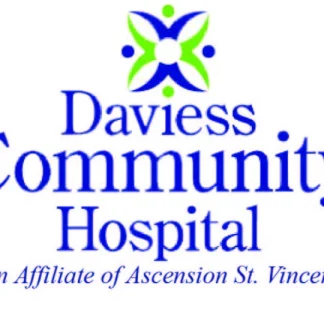Good Samaritan Hospital
Good Samaritan Hospital is a private rehab located in Washington, Indiana. Good ...
Daviess Community Hospital's Behavioral Health Service provides intensive, structured outpatient counseling to persons, 8 years and older, who can benefit from therapeutic services. Our multi-disciplinary treatment team provides assessment, treatment, and rehabilitation of behavioral disorders in an environment that fosters positive change.
Anyone may make a referral to the DCH Behavioral Health Services.
Inpatient Behavioral Unit – Geriatric Care (55+) Transitions specializes in mental health care and services for geriatric patients. Both inpatient and outpatient services are provided under the direction of a full time psychiatrist. Our treatment team is well established in the therapeutic community and offers patients a host of resources that may be beneficial for treatment. We provide patients with a compassionate, nonjudgmental ear— the sharing of your experiences with others can be a tremendous source of relief and aid in your overall recovery.
This program involves several daily scheduled activities, some or all of which you may be asked to participate in. Services are provided by a team of highly qualified professionals, including a physician, nurses, mental health techs, and therapists.
While in the program, we ask that you attend all prescribed activities/groups on a regular basis. In addition, we ask that you participate in the program by interacting with your peers in a helpful manner and maintaining a clean, neat and safe unit environment.
Contact us for more information: (812) 254-8634

Connect with Daviess Community Hospital by calling their admissions team directly.
(812) 254-8634 Website Get DirectionsThe Commission on Accreditation of Rehabilitation Facilities (CARF) is a non-profit organization that specifically accredits rehab organizations. Founded in 1966, CARF's, mission is to help service providers like rehab facilities maintain high standards of care.
CARF Accreditation: Yes
The Joint Commission, formerly known as JCAHO, is a nonprofit organization that accredits rehab organizations and programs. Founded in 1951, the Joint Commision's mission is to improve the quality of patient care and demonstrating the quality of patient care.
Joint Commission Accreditation: Yes
Cognitive Behavioral Therapy (CBT) is a therapy modality that focuses on the relationship between one's thoughts, feelings, and behaviors. It is used to establish and allow for healthy responses to thoughts and feelings (instead of unhealthy responses, like using drugs or alcohol). CBT has been proven effective for recovering addicts of all kinds, and is used to strengthen a patient's own self-awareness and ability to self-regulate. CBT allows individuals to monitor their own emotional state, become more adept at communicating with others, and manage stress without needing to engage in substance abuse.
Group therapy is any therapeutic work that happens in a group (not one-on-one). There are a number of different group therapy modalities, including support groups, experiential therapy, psycho-education, and more. Group therapy involves treatment as well as processing interaction between group members.
In individual therapy, a patient meets one-on-one with a trained psychologist or counselor. Therapy is a pivotal part of effective substance abuse treatment, as it often covers root causes of addiction, including challenges faced by the patient in their social, family, and work/school life.
Group therapy is any therapeutic work that happens in a group (not one-on-one). There are a number of different group therapy modalities, including support groups, experiential therapy, psycho-education, and more. Group therapy involves treatment as well as processing interaction between group members.
In individual therapy, a patient meets one-on-one with a trained psychologist or counselor. Therapy is a pivotal part of effective substance abuse treatment, as it often covers root causes of addiction, including challenges faced by the patient in their social, family, and work/school life.
In individual therapy, a patient meets one-on-one with a trained psychologist or counselor. Therapy is a pivotal part of effective substance abuse treatment, as it often covers root causes of addiction, including challenges faced by the patient in their social, family, and work/school life.
Good Samaritan Hospital is a private rehab located in Washington, Indiana. Good ...
The Lighthouse Recovery Center, located in Washington, Indiana, offers a nine mo...